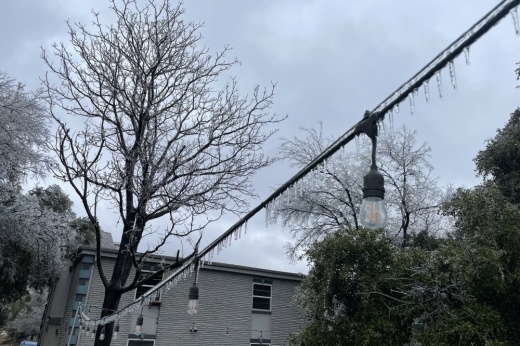The court determined ERCOT is a government entity, making it immune to lawsuits.
“ERCOT’s governmental nature is demonstrated most prominently by the level of control and authority the state exercises over it and its accountability to the state,” wrote Chief Justice Nathan L. Hecht.
The court ruled unanimously that ERCOT is part of the government, but was split 5-4 on whether it was eligible for “sovereign immunity.”
Justices dismissed two lawsuits—one from San Antonio’s municipal utility provider, CPS Energy, and the other from Panda Power Funds, a private power plant developer based near Dallas.
CPS Energy alleged that it lost at least $18 million as a result of ERCOT’s high power prices during the February 2021 storm.
“CPS Energy was able to reduce the costs passed on to our customers by millions and drive critical discussions at the highest levels that are necessary to improve our power grid and energy market,” CPS Energy spokesperson Dominique Ramos said in a statement.
At least 246 Texans died during or shortly after the storm, due to the extreme cold, pre-existing illnesses that were exacerbated by the storm and other issues. Millions of Texans lost power and water for days.
Separate from the storm, Panda Power requested $2 billion to alleviate “substantial financial harm” caused by inaccurate demand reports from ERCOT.
ERCOT serves 90% of Texas’ population and 75% of its land. Hecht wrote that granting immunity “prevents the disruption of key governmental services, protects public funds, and respects separation of powers principles.”
“Unlike any other entity previously granted immunity by this court, no statute designates ERCOT as a part of the government,” Justices Jeff Boyd and John Phillip Devine wrote in the dissenting opinion.
The justices recommended the Texas Legislature “correct the court’s error” by removing some or all of ERCOT’s immunity through future legislation.
“In this way, the Legislature could begin restoring the public’s trust following this court’s erroneous extension of sovereign immunity to a purely private corporation,” the dissent said.
Ramos said CPS Energy was “disappointed” by the ruling but recognized the court needed to make a decision on the issue.
“We will continue to work collaboratively with ERCOT and the Public Utility Commission of Texas as we pursue priority issues like sustainable generation planning, and delivering reliable, affordable and equitable energy,” Ramos said.
In a statement, ERCOT applauded the court’s decision and emphasized that the ruling “allows us to continue to focus on our core state responsibilities on ensuring a reliable grid for Texans.”





